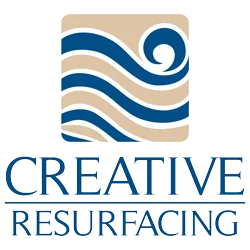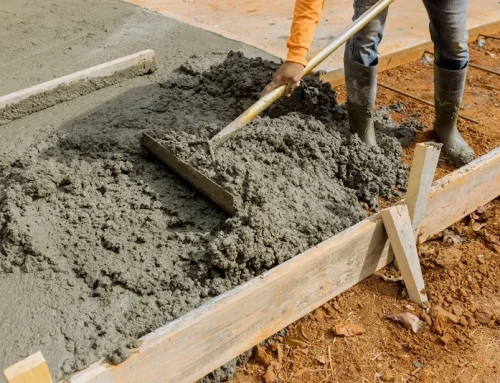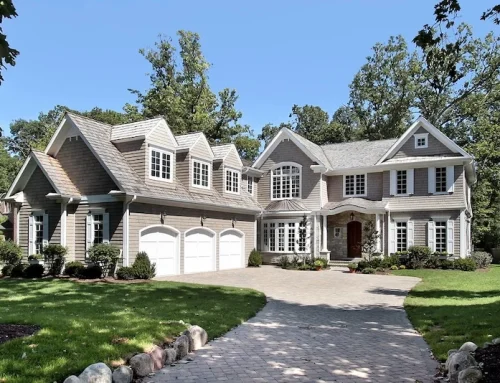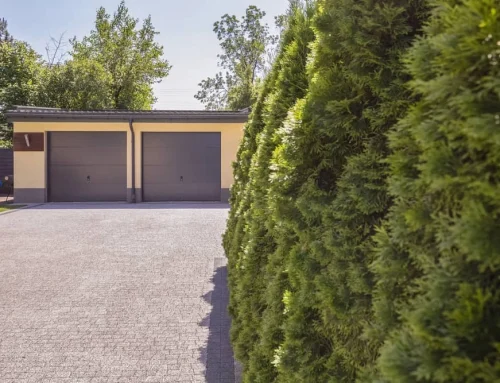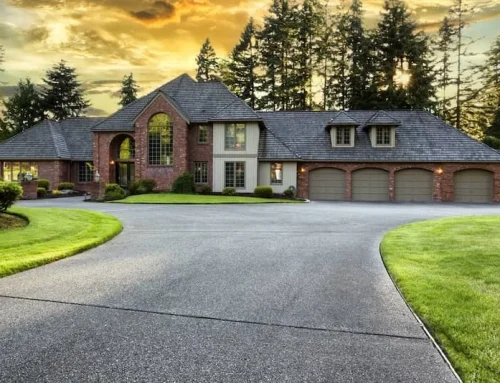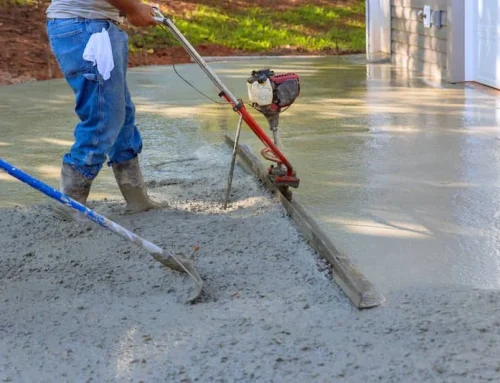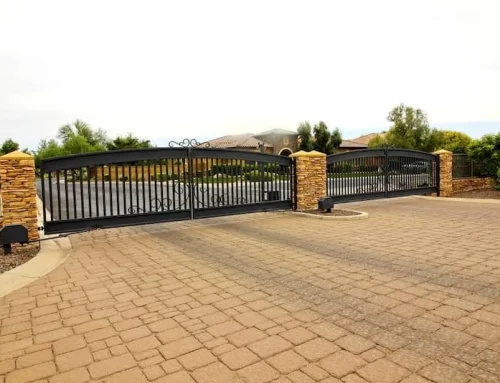Concrete or blacktop—most homeowners think those are the only two choices when it's time to fix or replace a worn-out driveway. But while both materials are common, they come with serious downsides: high costs, long cure times, and surfaces that don't always hold up in Florida's harsh sun, rain, and humidity. Choosing the incorrect material can lead to early cracks, fading, or frequent maintenance.
So what's the better option?
In this blog, you'll learn how driveway resurfacing offers a smarter, longer-lasting solution. We'll compare concrete and blacktop head-to-head, explore why resurfacing is gaining popularity, and show how Florida homeowners can get beautiful, durable driveways—without the hassle of starting from scratch.
The Old Debate: Concrete vs. Blacktop—Which One Wins?
For years, homeowners have compared concrete driveways and asphalt driveways when planning a new driveway. These two paving materials dominate the market, each offering strengths and trade-offs. If you're weighing your options, it's important to understand what makes these materials different, especially in hot climates like Florida.
The Basics of Concrete Driveways
Concrete is a strong, long-lasting material made from a mix of cement, gravel, sand, and water. Once poured, it forms a solid concrete slab that can last decades with proper maintenance. Concrete also offers a clean, modern look and can be painted, stamped, or stained for style. Though the initial cost is higher, it's a low-maintenance option in the long run.
What Makes Blacktop Appealing?
Asphalt, also called blacktop, is made by mixing crushed stone or gravel with bitumen, a sticky byproduct of crude oil. Asphalt has a dark, smooth surface and is a softer material, which means it can expand and contract more easily. This makes it popular in cold climates with freezing temperatures. It's also an affordable option for parking lots and driveways because of its lower cost per square foot.
Why Both Struggle in Florida’s Climate
In hot weather, both concrete and asphalt face challenges. Concrete can crack under extreme ambient temperatures, while blacktop softens and fades. In warmer climates, the durability of both depends heavily on maintenance and local climate conditions. Learn more about how weather affects concrete driveways. Florida's high heat, UV exposure, and rain make these two materials more vulnerable to potential damage than many expect.
Why Full Driveway Replacement Isn’t Always Worth It
Once you compare concrete or blacktop, full replacement might seem like the next logical step. But in many cases, tearing everything out and starting over isn't necessary—or cost-effective. New driveway installation sounds like a clean slate, but it often brings more problems than solutions.
Hidden Costs That Add Up Fast
Replacing any pavement material means more than just the surface. You'll pay for demo, hauling, grading, new base layers, and labor. Whether you're using concrete, asphalt, or even pavers, the project can quickly balloon in price, especially if your existing base isn't stable. Factor in repairs, materials, and equipment, and you're paying far more than most homeowners expect. The cost per square foot is just the start.
Curing Time, Tear-Out, and Temporary Disruption
Concrete needs days to cure before it can support vehicles. Blacktop can be driven on sooner, but still requires time to settle. During that downtime, your driveway becomes unusable. For families with one household vehicle or no nearby parking, that disruption becomes a daily stressor. The tear-out phase is noisy, messy, and often reveals deeper issues like drainage problems or base shifting.
When You’re Paying for More Than You Need
In warmer regions, proper maintenance often keeps a concrete or blacktop driveway in usable shape for years. Fully replacing it—when you could resurface instead—can be like replacing your whole roof just to fix a small leak. If your surface has cracks or wear but the foundation is solid, resurfacing may offer the same clean look at a much lower cost, with fewer delays and less mess.
The Smarter Move: Resurfacing Your Driveway Instead
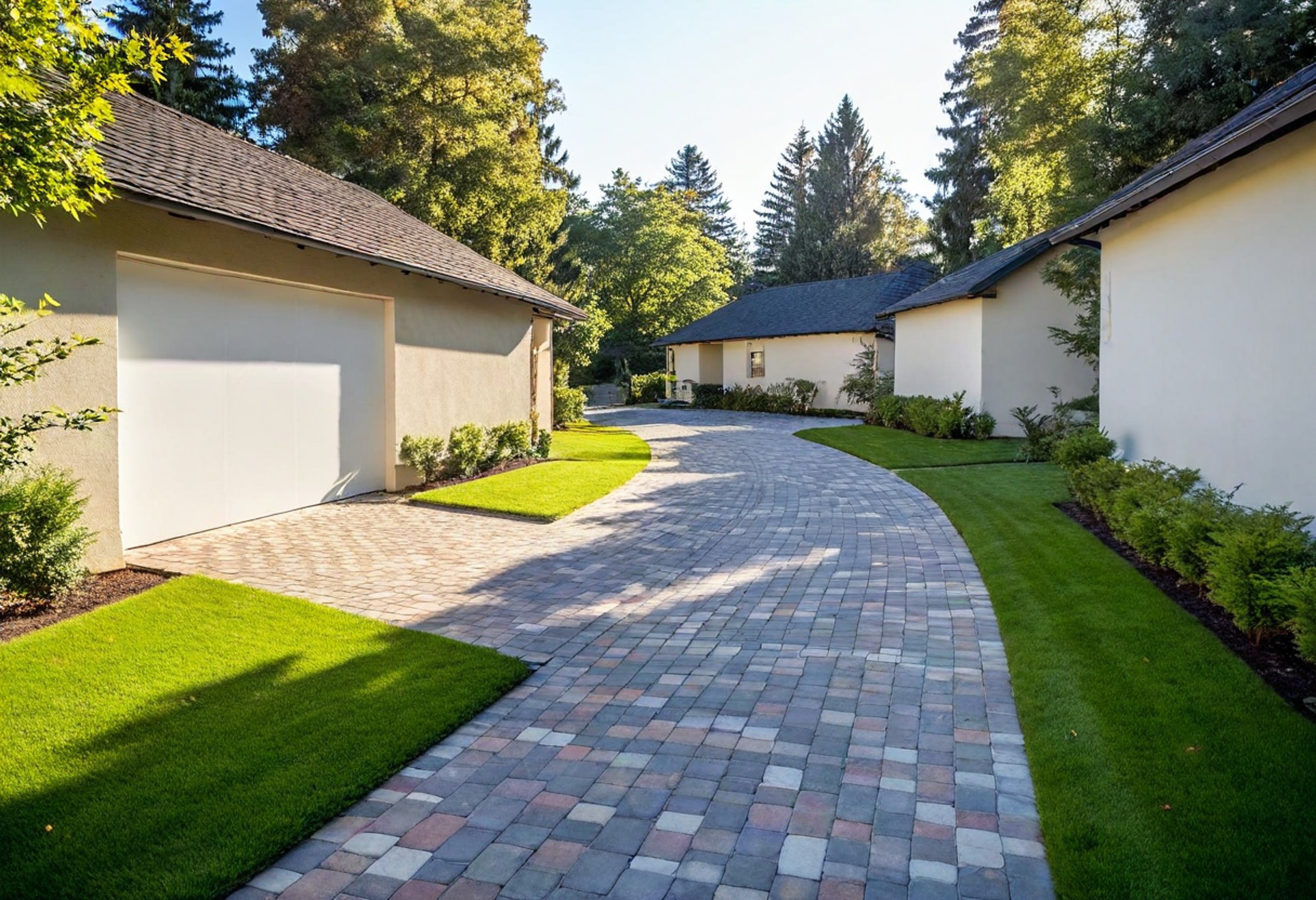
Replacing a concrete or blacktop driveway isn't your only option. In fact, it's often not the best one—especially if your foundation is still solid. When surface cracks, stains, or minor damage appear, full replacement might cost more than it's worth. That's where driveway resurfacing comes in.
What Is Driveway Resurfacing?
Driveway resurfacing involves applying a new cement-based coating over your existing pavement. This process fills surface-level cracks, evens out imperfections, and creates a smooth, durable finish without tearing out the original pavement material. It's quicker, more affordable, and causes far less disruption than starting over.
Advantages Over Concrete or Asphalt Paving
|
Feature |
Driveway Resurfacing |
Concrete or Blacktop Replacement |
|---|---|---|
|
Cost |
Lower upfront and long-term |
Higher cost per square foot |
|
Downtime |
1–2 days |
Up to 7+ days |
|
Climate Suitability |
Handles hot weather well |
Susceptible to cracks, softening |
|
Eco-Friendliness |
Reuses existing surface |
Requires full tear-out |
|
Maintenance |
Easy upkeep |
More frequent repairs |
|
Curb Appeal |
Fully customizable |
Limited styling options |
Decorative Finishes That Boost Curb Appeal
One major benefit of resurfacing is customization. You can choose from stamped textures, eco-friendly stains, or colored coatings to match your home's style. These options can mimic brick, pavers, or stone without the high installation costs. Whether you're upgrading for looks or prepping to sell, resurfacing adds value without the mess of starting from scratch.
Why Florida Homeowners Trust Creative Resurfacing Solutions
If you're deciding between concrete or blacktop, choosing the right contractor matters just as much as choosing the material. Florida's heat, humidity, and sudden storms demand surfaces that hold up year-round—without constant repairs.
Creative Resurfacing Solutions is trusted across Central and South Florida for good reason:
- We specialize in surfaces built for hot weather, heavy rain, and high humidity.
- Our driveway resurfacing process is quicker and more affordable than replacing concrete or blacktop.
- We've delivered reliable results for over 16 years in cities like Tampa, Orlando, Sarasota, and more.
Whether you're in a coastal zone or inland suburb, our team understands how Florida's climate affects your driveway. From curing times to sealing methods, we match our process to local conditions—so your investment lasts longer and looks better over time.
It’s Not Concrete or Blacktop — It’s Smart Planning
The real choice isn't just concrete or blacktop—it's whether full replacement is even necessary. If your driveway's base is stable, resurfacing often makes more sense. It costs less, takes less time, and delivers great results without the mess of a full tear-out.
In Florida's climate, surface wear is common, but that doesn't always mean you need a new driveway. Many issues can be fixed with resurfacing, especially when handled early.
Before you commit to a major project, talk to a local expert who understands how heat, rain, and time affect different paving materials. Creative Resurfacing Solutions helps you make the smart call—resurface when you can, replace only when you must.
Frequently Asked Questions
1. What is the difference between concrete and blacktop driveways?
Concrete is a durable surface made from cement, sand, and gravel, while blacktop (asphalt) uses a mix of crushed stone and bitumen. Concrete lasts longer but costs more; blacktop is cheaper upfront but requires more frequent maintenance.
2. Does Florida's climate affect concrete or blacktop driveways more?
Yes. Florida's heat, UV exposure, and rainfall can cause concrete to crack and blacktop to soften or fade. Both require regular maintenance, but blacktop generally deteriorates faster in hot, humid conditions.
3. Is resurfacing better than replacing a driveway in Florida?
In many cases, yes. If the driveway base is still solid, resurfacing offers a quicker, more affordable way to restore the surface without tearing everything out. It's ideal for fixing surface-level cracks, stains, or weather damage.
4. How long does a resurfaced driveway last in Florida?
A properly resurfaced driveway in Florida can last 10 to 15 years with routine care. Its lifespan depends on the quality of the installation and how well it's maintained in Florida's harsh weather.
5. Can you resurface both concrete and blacktop driveways?
Yes. Both concrete and blacktop surfaces can be resurfaced, as long as the foundation underneath is stable. It's a cost-effective way to extend the life of your driveway.
6. What are the benefits of decorative driveway resurfacing?
Decorative resurfacing adds style and curb appeal with custom colors, textures, and finishes. It can mimic stone, brick, or pavers without the high cost of full replacement.
